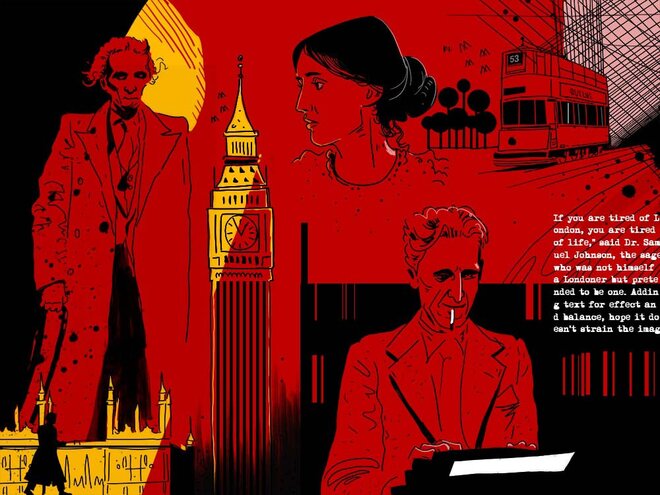
"If you are tired of London, you are tired of life," said Dr Samuel Johnson, the sage who was not himself a Londoner but pretended to be one. Since I, too, was getting tired of life, I thought I would take Dr Johnson's advice and spend some time in London.
The best way to wander around London is to throw yourself at the mercy of its buses and underground trains and go with the flow. You can change them as often as you like or when you feel you have had enough, rest your feet in one of the parks. The next day, you start again in another part of the town until your legs have had enough.
I thought I would start with a cup of tea at Victoria station, a mile or so from the Parliament until I discovered the stall had disappeared. Across the road from the old stall was a dhaba - a real dhaba - which served hot samosas and of course, tea. Samosas in London and parathas too, but London is now as much an Indian city as British and even Englishmen now have samosas for breakfast.
There are actually more Indians in London than in Karol Bagh and you get along without a single word of Queen's English crossing your lips. Halfway up Shaftesbury Avenue, another old haunt where I once saw Laurence Olivier in breeches looking for 'a horse for a kingdom,' there is an Indian restaurant straight out of Chandni Chowk and I was amazed to find it still there, though its curry is now a little anglicised. But give me a curry anytime instead of those wilting sandwiches.
Laurence Olivier is dead and so is Vivien Leigh but the faint echo of her streetcar named desire still lingers in the air as you cross into Tottenham Court Road, perhaps the most disreputable street in London and therefore, the most delicious. You get a whiff of something like opium as you stagger out of its pubs and men are unsteady on their legs and so are their ladies with glazed eyes.
The bus makes a long detour near University College, where George Orwell spent his last days, past Bloomsbury where Virginia Woolf wrote her dainty novels before she committed suicide during the war. Bloomsbury has now been taken over by publishing houses and there is a McDonald's right in front of Woolf's old residence where John Maynard Keynes lived with his poodle.
I used to live in a hostel nearby, once frequented by the likes of Krishna Menon who, lean and hungry as a scarecrow, used to sell his handwritten pamphlets for a shilling a piece. But that was, of course, before he struck gold as Jawaharlal Nehru's high commissioner and began wearing handmade suits of the finest cashmere that went well with his new Rolls Royce.
On to Hampstead, which you can still reach by a quaint little railway, so tiny it is probably run by children. A small road links Hampstead with Rosslyn Hill, not far from the house where Julian Huxley once lived before he went on to Paris as UNESCO's chief. On a balmy evening one summer, I saw Huxley in earnest conversation with Bernard Shaw, of all people and Bertrand Russell, after maybe one of those austere Fabian suppers consisting of dried up leaves of lettuce and peanut cutlets, for which the socialists were famous.
Hampstead Heath, where Orwell used to walk his dog, is only a short walk past the little cottage where Keats once lived and where, in an upstairs room, you can still see his lock of hair and some clothes. In fact, there are dead writers all over the place in London, so many that you forget that London has also its politicians and statesmen. Most of them live, if that is the right word, cheek by jowl, in Westminster Abbey, not far from Victoria station, though the greatest of them all, Winston Churchill rests peacefully in St. Paul's Cathedral, a couple of miles away.
A week is a long time in politics, said Harold Wilson, a prime minister. So is a day in London!








